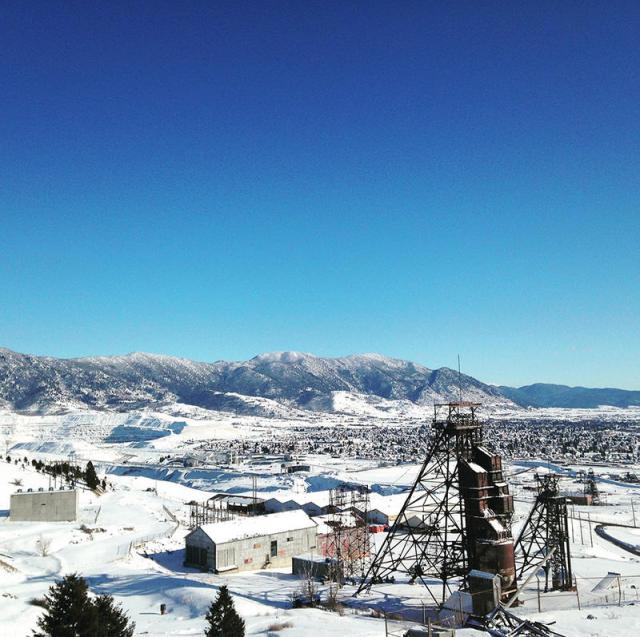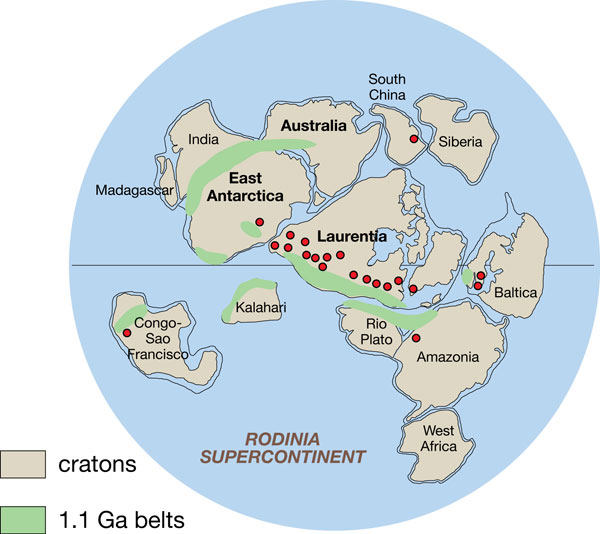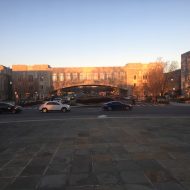
Photo: Taken from http://www.mtpr.com. Butte, Montana in Summer (This picture probably was taken in the winter but it could have been taken in July.)
While I was reading ‘s article “Is Google making us stupid” (https://www.theatlantic.com/magazine/archive/2008/07/is-google-making-us-stupid/306868/) in Atlantic Magazine, I reckon back to my undergraduate days in the small university known as the Montana School of Mines. As an 18 year old, I decided to go to Butte, Montana for school. For those who don’t know, Butte is a former town that had a million people that mined out a mountain for its cooper and zinc. Now, the city has only 36,000 people and the skeletons of its mining heritage. The city is also a mile high in elevation and the winters were brutal even in Montana standards. Then, the Montana School of Mines was male-dominated engineering school of 3,000 hearty souls that did not have much of a “nightlife.” It was said that you had the choice between studying, drinking (Butte does not have an open container law), or sleeping. Don’t get me wrong, I had a wonderful education to get me set on my career and plenty of cheap Rainer/Olympia beer.
As a freshman, I was bored. You can only rearrange your dorm room so many times (15 times the first semester) or play cribbage or hearts. I had homework but I was diligent about it so there was a lot of extra time. So, I went to the library. As a young and budding geologist, I would sit through the journals in the large dusty books. It wasn’t until Christmas break that an article from the Geological Society of America that had a hypothesis of the makeup of Rodina. Rodina was a supercontinent that formed before its more famous cousin Pangaea. As shown below, western North America (Laurentia) was connected to southeast Australia and the center of Antarctica. https://en.wikipedia.org/wiki/SWEAT_(hypothesis)

So, I started with the one article and grabbed the articles that it cited. I would run with a little cart and go down and photocopy the article. I would then take it up to my little dorm room and read those articles. Those articles would cite other articles that would start the cycle again. During the process of slipping down on a Friday night to grab more articles around the library or enter data into a new fangled database program called Microsoft Access, I was learning a new subject that I wasn’t going to learn in school. During my sophomore year, the library got an electronic database program that you can look for either authors or the articles it cited. I still had to get up and chase down the journal on the shelf but now I can speed up the search process and find the newer articles. It was a dream come true.
During my junior year, I presented a variation to the model above as an undergrad at the Geological Society of America Annual Conference and my little abstract was selected for their media guide. All the hours in the library with the dusty journals and the bill for $250 that my advisor got when he got the bill for photocopying charges when he gave me his “code” was worth it. I learned to read journal articles and absorb the content very quickly. It got me my ticket for my graduate education at Syracuse University when I met a professor at the conference that became my advisor.
Today, I have the library in my pajama pants. The days of going out into the cold or blowing off the dust off a journal is over. I go on to google on the computer and pick a subject. Boom, there are 10,000 articles. With a little sorting and some more keywords, I go to the journal and hit the libx button. The webpage form the publisher thinks that I am accessing it from a Virginia Tech library computer. I press another button and there is a pdf sitting on my screen. I can then take the title and put it through Google Scholar. I can see the articles that have cited it. I can get a pdf of those articles with a couple of mouse clicks. The hours that I spent looking through the dust of the library and carrying them off to a photocopy machine are over. I have now time to drink a good bourbon, read a good book, and enjoy much better weather in southwestern Virginia.
With all due respect Mr. Carr, you can take your Atlantic article and the belief that the old days were better and go to hell.

Hi John,
I think you have some great insights here and some accurate critiques of Carr’s article. Carr does present some interesting anecdotes about how people have different reading patterns, but that doesn’t connect with the actual title of the article. Oddly, it doesn’t seem like the people in the article or Carr himself have a firm grasp of what research looks like. Often times I do skim journal articles for my own research to make sure they are relevant, then I download and read them offline. According to Carr’s article that should imply that I do very little reading (which is quite the contrary.) I think this is ultimately a major fault with this conceptualization of technology and is usages in education and your post clearly outlines the major issues well.
LikeLiked by 1 person
John,
Interesting post, as usual! I definitely agree that Google (and the interwebs more broadly) give us some pretty great tools for information curation. Although I don’t have many memories before Google, and none of them involved in-depth academic searches, I still know how much harder and time consuming things would be without it.
That being said, I also think there has been a phenomenon accompanying student’s reliance on Google that has also impacted me. Students are able to quickly look up information when they need it, and because that information was so readily available to them, there’s no need to store it for longterm recall. Instead, you can just look it up again when (and if) you need it next. I’m not necessarily saying this is a bad thing; it leaves a lot more space for other information. But, when I ask students about information that a few years ago would have been considered crucial in my field, they don’t have it stored in their long-term memory. Instead, I see them quickly googling the concept or event I’m asking about. But like I said, I’m guilty of the same thing!
LikeLike
I enjoyed reading your blog. I can relate on the mining town comments. My father was a coal miner and the town he lived in as a child (Welch, WV) was booming. He tells stories of how it was the 3rd most populated town in WV and how you could not find a parking spot downtown on a Saturday. When the mines went down, the place turned into and remains a ghost town today. I agree with your appreciation of how technology has helped to expand our knowledge base. I can remember being impressed when I first used a word processer instead of a typewriter and I have no desire to go back to those days! Cindy K.
LikeLike
I believe Carr imagines his mental and reading capacity would be exactly the same as if paper was still the primary material. He sounds really un-evolved and bitter about the aging process. And then there was that whole skimming thing they said: “They typically read no more than one or two pages of an article or book before they would “bounce” out to another site. Sometimes they’d save a long article, but there’s no evidence that they ever went back and actually read it.” You mean, like reading the jacket cover of a book and realizing you don’t want to waste your time with the whole thing? Just because it’s digitized doesn’t mean I want to read rubbish. “Same as it ever was” – Talking Heads
And on the Carr’s inability to focus, yeah, my brain is a little slower, and my eyesight is worse. My night vision? Terrible. I still read books sometimes, but I also want to go to bed at a reasonable hour because… goddammit, I’m an adult with more responsibilities now than ever. If my brain drifts while in the middle of reading an article, maybe it is because someone doesn’t know how to write an interesting paper. I can make it through an entire Nat Geo cover-to-cover and not realize the time has gone by. But, if I have to slog through another academicese-filled diatribe written by some pompous…
Musician Greg Brown wrote that great line, “My friends are gettin’ older, so I guess I must be, too.” Go buy yourself a printer, Carr. They’re pretty cheap these days. Get all of those words on paper and knock yourself out.
LikeLike
John,
As a fellow inhabitant of a once booming mining town and a fellow information hound, I empathize with you. However, I don’t think Carr’s article is really trying to argue that the Internet makes people stupid, exactly. Oh, to be sure, his article is full of leading anecdotes, romanticized visions of the past, elitist gatekeeperism, and a clickbaity title, but that can be chalked up to editors and the state of the industry. His article I think is just more of a cautionary argument for the merits of quiet and reflection in reading and learning as opposed to taking in a bunch of information at once. When he uses the term “research”, I think Carr”s referring to the methods most people obtain information, rather than in-depth learning about a subject. It’s the same story anytime some process gets expedited and people get excited. It’s just a quiet voice trying to calm the kids down, that’s all.
Best,
Jon
LikeLike
Thanks for sharing your personal story and really touching on the benefits of what technology can bring to the purist of knowledge. I mentioned this in another comment, but I wonder if the bitterness displayed toward the ‘information age’ is directly related to people who equate memorization with understanding. I imagine if someone thinks that being ‘smart’ is having innumerable facts downloaded and ready for recall then the ability for anyone to reach these things effortlessly through a search engine would belittle that definition.
LikeLike